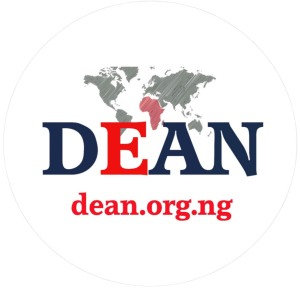DEAN Initiative selected as one of 4 global recipients of CJRF 2024 grant out of 513 expressions of interest, receiving the highest number of votes. The only Nigerian and West African organization among winners from Bangladesh, Indonesia, and Kenya.
Development of Educational Action Network (DEAN Initiative) is proud to announce its selection as one of the 4 recipients of the Climate Justice Resilience Fund (CJRF) 2024 Global Open Call grant. DEAN Initiative joins a group of 4 prestigious organisations worldwide as the only Nigerian Organization and West African Entity to be shortlisted as a winner. The three other organisations are from Bangladesh, Indonesia, and Kenya. The Climate Justice Resilience Fund (CJRF) received 513 expressions of interest, which led to 274 groups submitting applications. It is more exciting to announce that DEAN Initiative received the highest number of votes, emerging as one of the 4 winners.
The CJRF grant aligns with DEAN Initiative’s mission to promote climate justice and resilience reforms through capacity building and youth leadership. The funded project: The Lake Chad Climate Justice Fellowship will empower 20 young climate activists from the Lake Chad region with the knowledge, skills, and opportunities required to advocate for climate justice, address gender-based violence, and mitigate the insecurity caused by climate change in their communities. Participants will gain the skills and knowledge to advocate for climate justice through advocacy, capacity building, and network development. DEAN Initiative will work closely with local, regional and global partners to implement the project, leveraging the expertise of climate experts and governance specialists.
“We are thrilled to be selected for this grant and excited about the possibilities it brings for young people in the Lake Chad region,” said Doreen Oho, Technical Programs Lead at DEAN Initiative. “Recognizing the disproportionate impact of climate change on the region, the fellowship addresses critical challenges such as gender-based violence (GBV), regional insecurity, and shrinking livelihoods caused by the impacts of climate change. Hence, this funding will allow us to provide marginalised youth in the Lake Chad Region with the knowledge and skills they need to become agents of change in their communities, ensuring that they play a central role in the region’s sustainable development and climate resilience efforts,” she said.
Ngozi Edum, DEAN’s Partnership and Innovation Manager, mentioned that the fellowship will challenge colonial narratives and promote social justice by centring on indigenous knowledge systems and prioritising locally led solutions. “This initiative recognises that true climate justice cannot be achieved without addressing the structural inequities that have historically excluded marginalised communities. By amplifying the voices of young leaders in the Lake Chad region, our goal is to develop context-specific responses to climate resilience and governance challenges,” she said.
DEAN Initiative is committed to supporting youth empowerment and advancing the rights of marginalised communities through sustainable development and climate action. This grant is a significant step towards realising those goals and further reinforces DEAN Initiative’s commitment to improving the livelihoods of vulnerable populations across the region.
